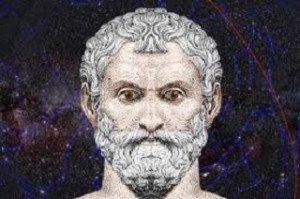Now THAT’S a First

This is called to mind by a note in the Writer’s Almanac to the effect that today is the anniversary of the publication of the very first modern detective story, “The Murders in the Rue Morgue,” written by Edgar Allan Poe in 1841.
As we regard our culture, all of these big bold “firsts” play important roles in defining who we are as a people.
And here’s another first—one that is in the process of taking place right now in our civilization. We’re about to be the first generation in the history of humankind that came together collectively, put aside our bickering and our fascination with the differences between us, and took action to deal with a potentially lethal challenge that faces us all: the rapid degradation of our environment and its ability to support life.
There is no precedent whatsoever to suggest that humankind can perform something so high-minded, but we’re very clearly headed in that direction. It will be a first, and an exquisite one at that.

There are times when I try to understand the perspective of a past age rather than compare the beliefs of the time to our present understanding.
Science and our empirical view of the world is a relatively recent phenomona. Perhaps only several hundred years old. Prior to this an understanding might not reflect the values we hold today. While I don’t know if Thales accepted an ancient view of the world some thinkers described our universe using only 4 “elements:” Earth, Fire, Air and Water. These were more what we would consider spiritual descriptions than the purely physical descriptions.
From this site: http://www.spiritual-knowledge.net/articles/fire-water-air-earth.php
Water is described as:
“The element of water (phlegmatic)
Positive qualities: understanding, placidity, mildness, trusting nature, devotion, mercy, forgiveness, modesty, compassion, fervour, pliancy, meditativeness, internalization…
Negative qualities: indifference, heartlessness, laziness, indolence, rigidity, lack of daring, lack of concern, unstableness, dejection… ”
Viewed in this way “the Earth” might be said to be mostly composed of water rather than any of the “other 3 elements.”
I don’t know exactly what he was trying to describe, but often I fine it a useful exercise to try and see the truth in the statement rather than the clear falsehood when anachronistically comparing an older statement to the standards of today.
Re: your last line: I fine it a useful exercise to try and see the truth in the statement rather than the clear falsehood when anachronistically comparing an older statement to the standards of today….
That’s what makes you such a rare and wonderful person. I’m a decent guy too, but I don’t have too much respect for the propounders of pre-scientific theories, especially insofar as they used to apply to human health: leaches, blood-letting, etc. I think you have to be deranged to treat a patient with a practice where there is absolutely zero evidence for its efficacy.
“Rare?,” perhaps unusual or sometimes bizarre. “Wonderful?” depends also on the capacity of the receiver as does “rare” in the sense of “precious” … and to that the credit is returned to you with my gratitude.
I am not about to blindly accept any ancient *or current) philosophy and swallow it whole, but sometimes a taste can be appreciated and savored. The exercise has concurrent applications as well. It is possible to listen to someone you think is mostly a fool to try and understand how they find their truth. There are times when you do this but it does require a certain confidence in yourself to not feel personally diminished by something that is different.
“Science” now “knows” that there are three elements required for fertilizer and these are now commercially applied to give us tasteless food that is devoid of essential minerals and vitamins. This is also one way to measure progress. So I am not entirely confident that science has all the answers or technology when combined with economics is now a perfect improvement over past mistakes.
There are certainly mistakes made in the past, but perhaps there are also many kernels of truth previoiusly misapplied or misunderstood. Curiously modern medicine is now finding that bloodletting is an appropriate treatment for specific situations: http://www.medtech.edu/?q=blog/the-history-progression-and-modern-stance-on-bloodletting